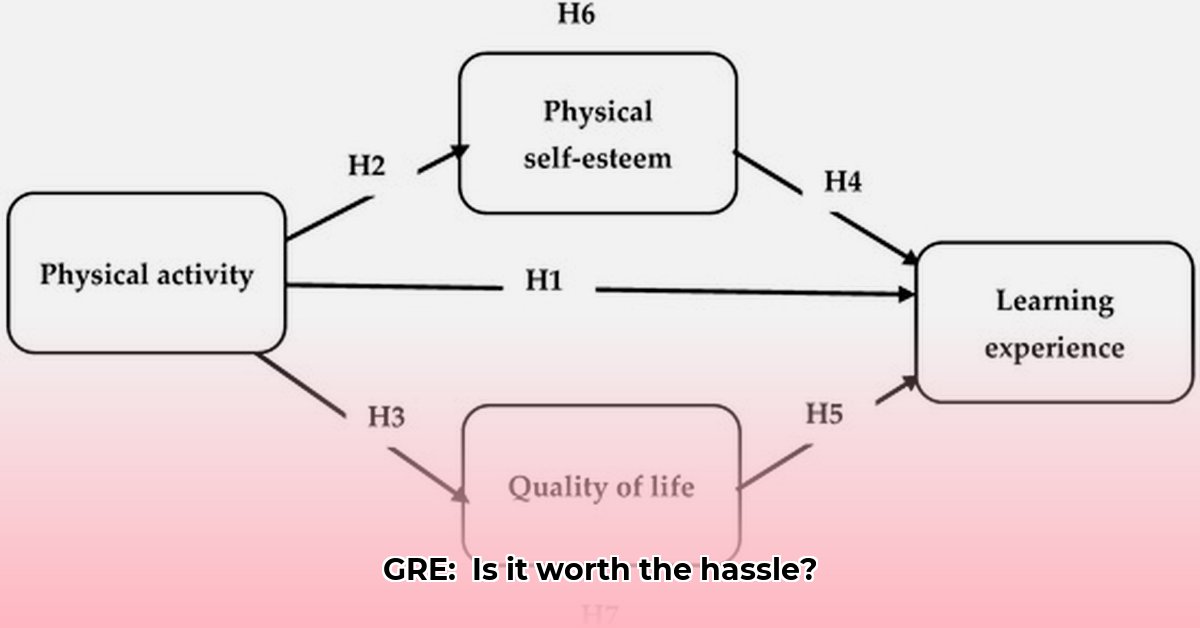
The Graduate Record Examinations (GRE), a long-standing gatekeeper to graduate programs, is increasingly facing scrutiny. Is this decades-old standardized test still the best predictor of graduate school success, or is its relevance waning in the face of evolving admissions practices? This article examines the ongoing debate, exploring the GRE's history, current status, criticisms, alternatives, and the future landscape of graduate admissions.
The GRE: A Historical Perspective
For decades, the GRE served as the primary benchmark for evaluating applicants to graduate programs. Its rise to prominence mirrored a broader trend in higher education towards using standardized tests as objective measures of academic potential. This seemingly objective approach provided a common yardstick for comparing applicants with diverse academic backgrounds.
The GRE Today: Continued Use Amidst Growing Concerns
Despite the emergence of alternative assessment methods, the GRE remains a significant player in graduate admissions. While precise statistics on current GRE usage are needed for a complete picture, anecdotal evidence and numerous university websites still list it as a requirement or recommended component of the application process for many programs. However, this widespread usage exists alongside a steadily rising tide of critiques. Is this continued prevalence a testament to its enduring value or a symptom of institutional inertia?
Criticisms and Concerns Surrounding the GRE
Critics raise several significant concerns regarding the GRE's efficacy and fairness. One key area of contention is its predictive validity—does a high GRE score accurately predict a student's success in graduate-level coursework and research? Studies on this topic are diverse, with some suggesting a correlation while others question the strength of the relationship. Furthermore, concerns regarding bias and the test's potential to disadvantage certain groups of students remain prevalent. The GRE's emphasis on standardized testing methodology, critics argue, may not fully capture the diverse skills and experiences essential for success in graduate programs. It's argued that the test prioritizes rote memorization over critical thinking and problem-solving abilities, qualities often considered paramount for advanced academic success.
Alternative Assessment Methods: A Shift Towards Holistic Admissions
A growing number of institutions are moving towards more holistic admissions practices. These approaches consider a broader range of factors beyond standardized test scores, including:
- Letters of Recommendation: Providing qualitative insights into an applicant's personality, work ethic, and potential for collaboration.
- Portfolios: Showcasing the applicant's past work and demonstrating their skills in a tangible way.
- Academic Transcripts: Reflecting consistent academic performance and relevant coursework over time.
- Work Experience: Offering valuable context and demonstrating practical skills and real-world application of knowledge.
These alternative approaches provide a more comprehensive understanding of an applicant's potential contributions to the graduate program. Will this holistic approach eventually make the standardized test obsolete?
The Future of Standardized Testing in Higher Education
The future of standardized testing in higher education remains uncertain. Several trends suggest a potential shift:
- Increased adoption of test-optional policies: The number of graduate programs that do not require the GRE or other standardized tests is expected to continue to rise.
- Growing acceptance of alternative assessments: Expect a continued increase in the consideration of portfolios, research experience, and other qualifications demonstrating practical skills.
- Focus on holistic review: The trend towards assessing the whole candidate, considering all aspects of their application, rather than relying solely on test scores, is likely to persist.
Actionable Recommendations for Stakeholders
The changing landscape requires adjustments from various stakeholders:
Graduate Admissions Committees: Develop robust evaluation criteria that integrate quantitative and qualitative data, ensuring fairness and equity in the selection process. Invest in training for evaluating applicant portfolios and letters of recommendation effectively.
Prospective Graduate Students: Focus on building a well-rounded application, including stellar academic records, strong letters of recommendation, compelling personal statements, and relevant research or work experience. Explore alternative assessment methods and adapt your preparations accordingly.
Test Preparation Companies: Diversify service offerings beyond GRE preparation, providing support for portfolio development, resume enhancement, and strategies for navigating holistic admissions processes.
Educational Researchers: Conduct further research exploring the predictive validity and potential biases of various assessment methods. Investigate innovative approaches to evaluating applicants fairly and effectively.
Conclusion: A More Holistic Future for Graduate Admissions
The role of the GRE in graduate admissions is undoubtedly evolving. While it continues to be used by many institutions, the growing emphasis on holistic review and the increasing adoption of test-optional policies suggest a shift towards a more nuanced and comprehensive approach to evaluating applicants. The future of graduate admissions will likely involve a blend of traditional and innovative assessment methods, requiring ongoing research, adaptation, and a commitment to fairness and equity. The debate surrounding the GRE's continued relevance is far from over, underscoring the need for continuous dialogue and collaboration among stakeholders to ensure a robust and equitable selection process for future generations of graduate students.